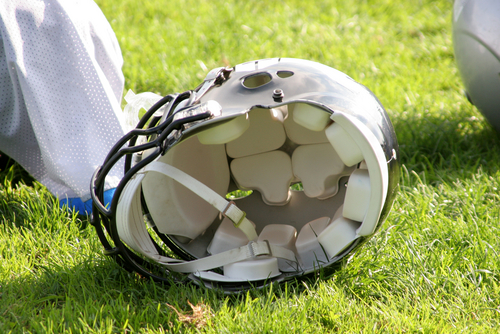In recent months, the concern about concussions and their long-term effects among NFL players has gained widespread attention. In the past month alone, two high-profile players — running backs Clinton Portis of the Washington Redskins and Brian Westbrook of the Philadelphia Eagles — have sustained concussions that have put their seasons in jeopardy. Meanwhile, in a hearing before the House Judiciary Committee last month, NFL Commissioner Roger Goodell defended the league’s policies amid heated criticism and accusations that the league has failed to protect and care for its players.
“I have been clear: medical considerations must always come first,” Goodell said. “We are changing the culture of our game for the better. Our goal is to make our game as safe as possible for those who choose to play it and treat our retired players with the respect and care they deserve.”
But after a weekend that saw both starting quarterbacks from last year’s Super Bowl — Ben Roethlisberger of the Pittsburgh Steelers and Kurt Warner of the Arizona Cardinals — leave their games early after suffering blows to the head and three members of the St. Louis Rams — quarterback Marc Bulger, linebacker Chris Chamberlain and offensive tackle Jason Smith — forced to undergo tests for possible concussions of their own, the NFL has decided to implement a new approach to handling concussions.
According to the plan, teams will be required to use independent neurologists to treat players with brain injuries. While teams already employ their own medical staff, outside consultation will eliminate potential of conflicts of interest from team owners and coaches who want injured players to return to the field more quickly than is medically advisable. While no deadline for implementation has been put in place, about half of the league’s 32 teams have approved doctors in place already.
But the independent, objective aspect of this is the key change.
These newly appointed neurologists would be “independent of the teams themselves, and they’re rendering an opinion that is guided by expertise in concussions,” the NFLPA’s Mayer said. “They’re not part of the club medical staff, so they’re an independent voice with regard to whether the player’s ready to return or not.”
The league has also called for other players to report teammates who they suspect are suffering from concussion symptoms but the players’ union opposes the requirement.
“If every player were a medical doctor that could recognize symptoms of concussions, then that would be a great idea,” said NFL Players Association assistant executive director George Atallah. “I hope that the league — instead of asking players to police each other — would consider calling on team medical staffs and independent doctors to police the situation closely.”
Some players, like Washington Redskins fullback Mike Sellers have even gone so far as to characterize players who report teammates as “snitches,” which speaks to a larger cultural problem among NFL players. Evidently in a game that values “toughness,” acknowledging an injury of any kind is frowned upon. According to an Associated Press survey of 160 current players, 30 report having hidden concussion symptoms from team personnel and half reported having at least one concussion during their career.
So it would seem that the NFL’s fight against brain injury will not only require a change in policy but a change in attitude as well.
For more on the NFL and concussions, check out the December issue of Risk Management, coming soon.

